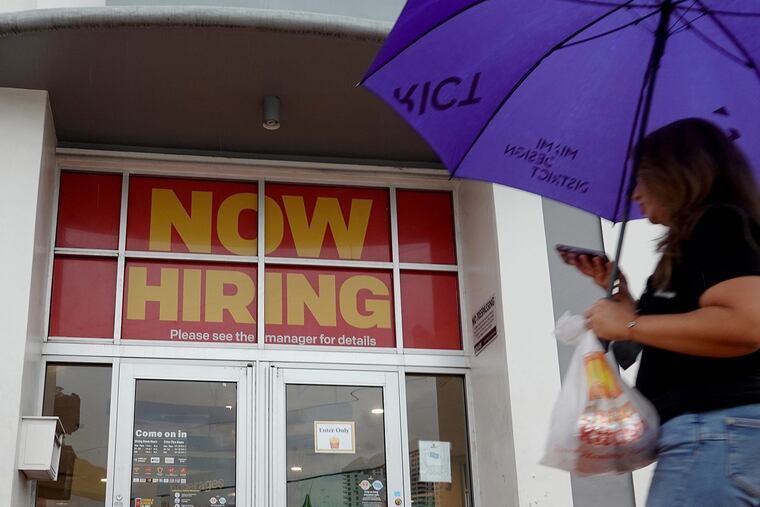A record 4.5 million workers quit or changed jobs in November
The number of workers quitting in November is up from the 4.2 million who left or changed jobs in October and surpassed the previous record of 4.4 million in September.

An estimated 4.5 million workers quit or changed jobs in November, according to new data from the Department of Labor, as labor shortages have helped create one of the more worker-friendly job climates in years.
The report shows a trend of high turnover in the labor market, a sign of how profoundly the economy has been reshuffled in the nearly two years since the onset of the coronavirus pandemic.
The pandemic has triggered tremendous changes in the labor market, with more than 20 million workers losing their jobs in March and April 2020, followed by a wave of uneven hiring. Many businesses have found it hard to retain workers, though, as many employees have used the pandemic to reevaluate their situations, lured by hiring bonuses, more-flexible hours or better working conditions.
The number of workers quitting in November is up from the 4.2 million who left or changed jobs in October and surpassed the previous record of 4.4 million in September.
The number of people who left jobs for other opportunities in November made up 3% of the workforce, the Bureau of Labor Statistics said in its monthly Job Openings and Labor Turnover Survey. The survey also found about 10.6 million job openings.
That number is not a record but still is elevated. Openings did decrease in restaurants and bars, construction work and goods manufacturing.
The numbers of resignations and job changes increased among restaurant and bar workers, health-care workers, and transportation, warehousing and utilities workers. These industries have been heavily disrupted by the pandemic and are sensitive to fluctuations in coronavirus infections.
Employers in many industries have been complaining about labor shortages for nearly a year. The dearth of workers has caused a scramble by many to raise wages or offer generous signing bonuses. Staffing problems have coursed through the worlds of tourism and hospitality, with hotels, restaurants and bars reporting trouble finding workers, as have employers in trucking, construction, transportation and other industries.
Many workers also have sought different types of employment as safety concerns and child- and family-care issues remain a lingering aspect of the pandemic.
This, in turn, has led to many workers changing jobs or industries for better opportunities, as job sites report elevated numbers of people looking to change industries and work from home. Other workers have been prompted into early retirement or have left the labor force entirely, causing the participation rate to tick down.
But, overall, the labor market recovery was strong in 2021, as the country added more than 500,000 jobs a month through the first 11 months of the year.
There are concerns now about a slowdown after November's numbers came in below expectations. How strongly the latest coronavirus surge will affect the labor market remains an open question.